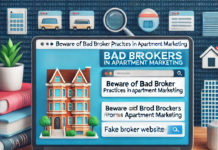Online reviews are incredibly powerful, and online reputation management is an integral digital marketing strategy for most businesses. According to recent statistics:
- 90 percent of consumers read online reviews before visiting a business.
- Online reviews impact 67.7% of purchasing decisions.
- 74 percent of consumers say positive reviews increase their trust in local businesses.
Unfortunately, positive reviews aren’t always elicited honestly (or even left by actual consumers). As competition in the online marketplace grows, there has been an onslaught of “opinion spam,” the deceptive practice of hiring third parties to write fake online reviews in exchange for payment, discounts, or other incentives.
Sound shady? It is. And it’s against the law.
Fake Online Reviews: Illegal, Unethical and Just Plain Deceitful
Consumers have the right to expect reviews of products, brands and businesses to be authentic and credible. The Federal Trade Commission agrees.
Per the FTC’s basic tenets of truth in advertising, online reviews and endorsements must be honest and not misleading. Marketers and advertisers who use online reviews in their strategy should practice fair and equal collection reviews – even if some reviews are negative – and should not write, commission, or publish fake reviews, among other guidelines embraced both in the US and internationally.
Failure to comply with these principles is not only unethical, but could also subject marketers to criminal and civil penalties.
Despite the potential fines and obvious ethical conundrum, coerced or fake online reviews solicited to improve ratings, rankings and reputation for products, companies and services seem to have established their permanence in the digital marketplace. An article published earlier this year in the Washington Post shed light on the widespread practice of commissioning fraudulent reviews via Facebook in exchange for compensation or incentives.
The more glowing ratings and reviews a product has on an online retail site like Amazon, the higher they show up in search results. Honest merchants and small businesses that use the platform are often crushed by the duplicitous dealings of competition, the Washington Post reports.
Do Fake Online Reviews Harm Your Company?
Despite crackdowns from retail giants like Amazon, the problem persists – so much so that tools built specifically to expose fake reviews, like FakeSpot and ReviewMeta, exist.
Sometimes, however, the tables turn on those brands that use fake online reviews on their own websites. For instance, Google penalizes businesses that request their employees write favorable reviews. How? Generally, Google’s algorithm likely detects that the reviews come from one IP address or a small, defined location and remove that site from search results.
Plus, consumers that suspect a company employs fake reviews to amp up their site may call out the business, exposing the lie to other potential customers. That business quickly loses trust and credibility among its target market.
Additionally, review scams exist that attempt to game the system. For example, brushing schemes attempt to illicit real reviews. Likely used in the “Chinese Seed” incident, merchants send lightweight and trivial products to customers to generate “real” reviews. In this example, a Chinese merchant likely sent thousands of low-costs packages containing seeds to many potential consumers. The effort aims at some of those folks providing good reviews about the merchant (on Amazon or Google). As we all know, with more reviews, they can sell more expensive (and profitable) products. The seeds were thought to be malicious and attempt to invite invasive specious into America, so the plan backfired. The Wall Street Journal describes the prevalence of this scam in China and its own ecosystem of vendors (that receive their own reviews!).
“On another website, amz123.com, Chinese posters provide evaluations of brokers and individuals that they paid to give positive reviews for their Amazon products, sometimes complaining that their product didn’t receive the reviews they were promised. Weibo and Amz123.com didn’t immediately respond to requests for comment.”
How to Elicit Authentic Reviews
While online reviews are important and often act as a powerful tool to convert site visitors into customers, using fake reviews is unethical at best and illegal at worst. Luckily, there are perfectly reasonable and principled ways to encourage customers to leave reviews for your company’s products or services.
Social media and email marketing offer the ability to constantly engage with your company’s following. These channels serve as perfect vessels to request reviews from your best marketers – legitimate customers. Add a footnote in a weekly newsletter to encourage subscribers to leave a rating and review. Post a similar callout on your social channels.
Search Engine Land shares other ways to encourage honest and authentic reviews, like:
- Emailing recent customers with a link that takes them directly to a review submission form.
- Putting up a sign at your brick-and-mortar location telling customers that reviews are appreciated (but not expected or incentivized).
- Adding a card to packaging that encourages recipients to leave a review online once the have received their product.
Sure, you’ll have to stomach negative reviews here and there. Let them serve as opportunities to better your product or service. Additionally, addressing any underlying issues helps turn an unhappy customer into an engaged and loyal follower. Plus, by generating more reviews, adding these to your site helps showcase your work. Fortunately, there are many WordPress testimonial plugins that makes this process very straightforward.
In the end, honest, real reviews are some of the best marketing tools you can use to keep your consumers happy, informed and inspired.





